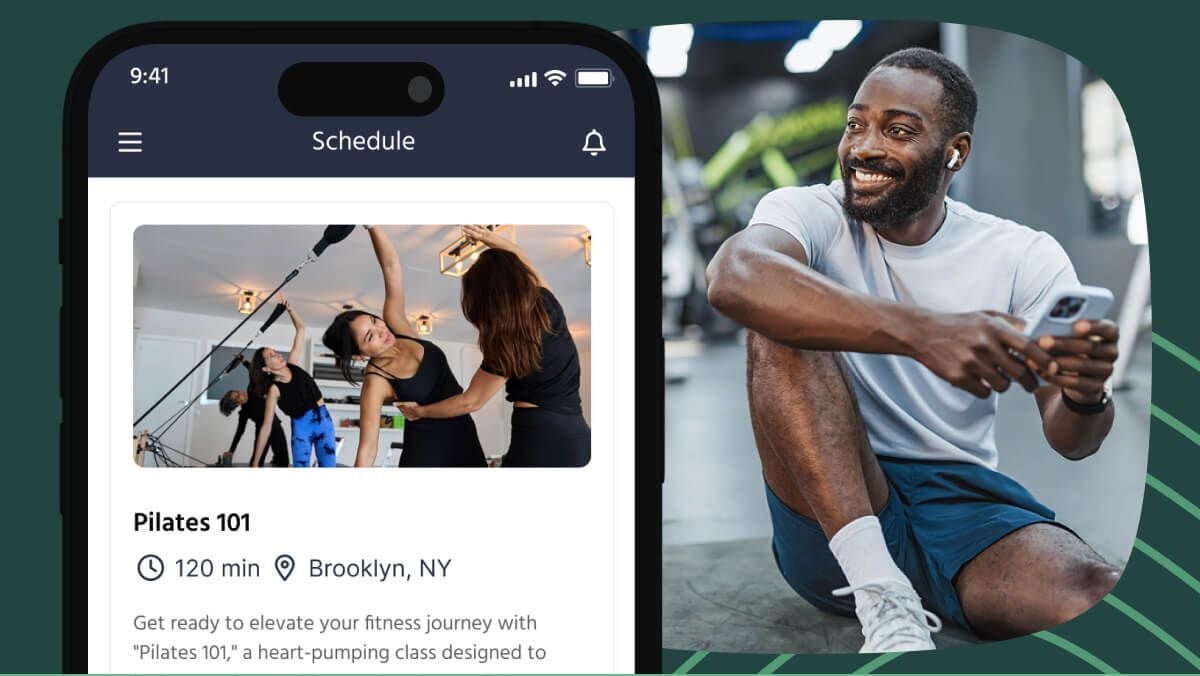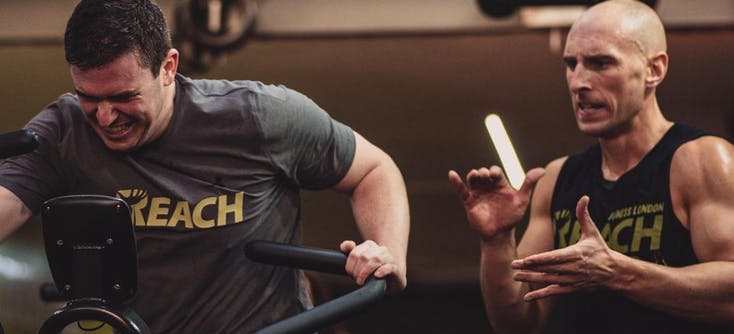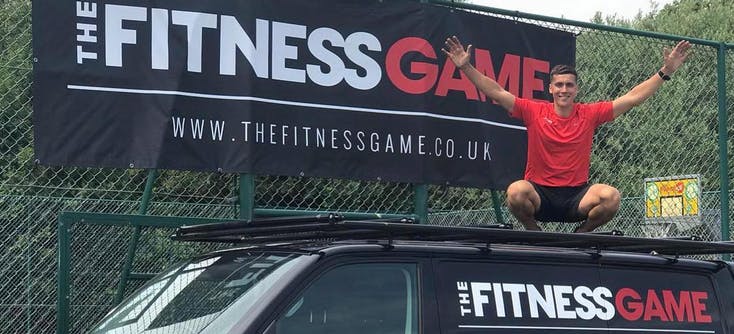As a fitness business owner, you know the struggle well: retaining and keeping clients motivated can be an uphill battle. Member engagement and retention are vital for the success of any gym or fitness center. Over time, many new members drop out due to a common culprit—lack of motivation. It's a challenge every fitness business owner faces.
That's where fitness challenges come into play because they offer a dynamic solution to these persistent hurdles. Fitness challenges add new energy to your gym's environment, turning it into a hub of enthusiasm and commitment. Whether it's a weight loss challenge, a strength-building competition, or a group fitness marathon, fitness challenges provide a clear roadmap for clients to follow, igniting their motivation along the way.
The popularity of fitness challenges indicates that clients enjoy setting and achieving goals in a supportive group environment, reinforcing their importance in fitness business models.
Numerous studies support the effectiveness of fitness challenges in client engagement and business success, making them a valuable tool for attracting and retaining clients. This article will explore fitness challenges in detail, highlighting their importance, benefits, and how to create them.

What is a fitness challenge?
A fitness challenge is an organized workout program that offers a consistent, progressive exercise plan with a specific goal or outcome set at the beginning. Typically, fitness challenges have a fixed duration, along with rules, requirements, and recommendations outlining the necessary activities to achieve the set goal. Participation and results are tracked to ensure accountability and maintain a fun and engaging experience.
These challenges can take various forms, such as 30 days of yoga and meditation (a specific example of a fitness challenge). They are designed to be completed individually or as part of a group, with built-in social components, a sense of community, and an element of healthy competition.
Fitness challenges serve as an effective way to keep members engaged, motivated, and actively working toward their fitness goals. Achieving physical results during these challenges reinforces the association between the fitness facility and success, boosting motivation and member retention.
What makes a good workout challenge?
A well-structured fitness challenge has several essential qualities that make it practical and engaging for participants. First and foremost, it should have a clearly defined goal from the outset, whether it's focused on weight loss, distance traveled, or fundraising for a charitable cause. Besides, the challenge should adhere to 30 days, 3 months, or a year to create a sense of urgency and provide participants with a clear timeline for achieving their objectives.
A fitness challenge should establish the explicit rules, requirements, and recommendations to maintain structure and ensure all participants work toward the same goal. This framework fosters consistency and offers guidance throughout the challenge.
It's essential to monitor all fitness challenges to keep track of progress and results. Monitoring participants' progress and results holds them accountable and motivates them. This tracking can take various forms, including progress tracking sheets, fitness apps, or other tracking methods.
To maintain participant motivation and interest, a fitness challenge should include elements of fun and engagement. This can be achieved by integrating social components, fostering community among participants, and introducing healthy competition.
For greater inclusivity, fitness challenges should be customizable to accommodate different fitness levels and goals, ensuring appropriate challenges without overwhelming participants.
Why are workout challenges essential for retention?
Member retention is a critical aspect of any successful fitness studio. Fitness challenges are crucial in maintaining and even increasing member retention rates. Here's why they are essential:
Goal Achievement: Fitness challenges provide members with clear, achievable goals, keeping them motivated and committed to their fitness journey. When participants see progress and meet their goals, they are more likely to continue their membership.
Community and Accountability: Challenges foster a sense of community and accountability. Participants often form connections with fellow challengers, creating a supportive network that encourages them to stick with their fitness routines.
Variety and Excitement: Regular participation in fitness challenges adds excitement and variety to members' routines. This prevents boredom and keeps them engaged, reducing the likelihood of membership cancellation due to monotony.
Positive Reinforcement: As members experience success during fitness challenges, it reinforces their belief in the effectiveness of the fitness studio's programs. Positive experiences are influential in retaining members.
Long-Term Commitment: When participants complete a fitness challenge, they are more likely to view fitness as a long-term commitment rather than a short-term fix. This shift in mindset aligns perfectly with fitness studios' goals to keep members engaged over time.
Member Data Insights: Fitness challenges often generate valuable member data. This information can personalize member experiences, tailor future challenges, and offer targeted incentives, further enhancing member retention strategies.
20 workout challenges to try at your fitness studio
1. 30-Day weight loss challenge
This challenge is designed for individuals aiming to shed excess weight and adopt healthier lifestyles. Participants follow a structured plan that combines calorie-controlled diets with regular exercise routines, often involving cardio workouts and strength training. The 30-day duration provides a clear timeframe for achieving short-term weight loss goals, making it an excellent choice for those seeking visible results.
2. Couch to 5K challenge
Ideal for beginners, this challenge takes participants from sedentary lifestyles to complete a 5K run. It typically spans several weeks and gradually increases running durations and intensities. This progressive approach ensures that participants build stamina and confidence while minimizing the risk of injury.
3. Bodyweight bootcamp
Bodyweight boot camps are high-intensity challenges that use exercises like push-ups, squats, burpees, and planks to target strength and cardiovascular fitness. These challenges require minimal equipment, making them accessible to many participants. They often include variations to accommodate different fitness levels.
4. Yoga challenge
A 30-day yoga challenge promotes flexibility, balance, and mindfulness. Participants explore various yoga styles and pose while developing a consistent practice. Yoga challenges foster mental and physical well-being, making them suitable for individuals seeking holistic health benefits.
5. Muscle gain challenge
This challenge combines resistance training, weightlifting, and appropriate nutrition for building lean muscle mass. Participants engage in progressive strength workouts, continuously challenging their muscles and monitoring their protein intake to support muscle growth.
6. Charity run/walk challenge
Beyond personal fitness goals, charity participants' run/walk challenges contribute to a noble cause. Fitness studios organize events where participants collect pledges or donations for each mile or kilometer they complete. These challenges promote community engagement while making a positive impact.
7. Plank challenge
A plank challenge focuses on core strength and endurance. Participants aim to increase the duration they can hold a plank position daily. This challenge progressively builds core stability, enhances posture, and strengthens the abdominal muscles.
8. Nutrition cleanse challenge
This challenge centers on clean eating and detoxification. Participants follow a nutrition plan emphasizing whole foods, eliminating processed items, and encouraging hydration. Nutrition cleanses challenges typically last for a specific duration, allowing participants to experience improved energy levels and overall well-being.
9. Mindful meditation challenge
Mindfulness meditation challenges help individuals manage stress and cultivate mental clarity. Participants commit to daily meditation practices, gradually increasing the duration. These challenges foster emotional resilience and mental well-being.
10. HIIT challenge
High-Intensity Interval Training (HIIT) challenges offer quick and intense workouts. They involve short bursts of vigorous exercise followed by brief recovery periods. HIIT challenges efficiently burn calories, improve cardiovascular fitness, and enhance endurance.
11. CrossFit challenge
The CrossFit challenge integrates functional movements, weightlifting, and high-intensity workouts. Participants engage in various exercises, including Olympic lifts, bodyweight movements, and cardio drills. CrossFit challenges emphasize overall fitness, agility, and strength, making them appealing to those looking for a well-rounded workout regimen.
12. Interval cycling challenge
This challenge focuses on indoor cycling with interval training. Participants alternate between high-intensity pedaling and recovery periods, enhancing cardiovascular endurance and lower-body strength. Interval cycling challenges are not only physically demanding but also exhilarating and team-building.
13. Body transformation challenge
The body transformation challenge is a holistic approach that combines workouts, nutrition plans, and lifestyle changes. Participants embark on a journey to improve their physique, health, and well-being. These challenges often span several months, allowing for significant transformations and instilling sustainable habits.
14. Boxing challenge
This challenge combines fitness with self-defense techniques. Participants engage in shadowboxing, bag work, and sparring sessions to improve agility, coordination, and upper-body strength. Boxing challenges offer an empowering workout experience.
15. Flexibility and mobility challenge
This challenge focuses on enhancing range of motion and flexibility. Participants practice various stretching exercises to improve joint mobility and reduce the risk of injuries. These challenges are suitable for individuals seeking improved flexibility and posture.
16. Swimming challenge
Swimming challenges target aquatic fitness. Participants work on stroke technique, endurance, and overall swimming skills. Swimming challenges promote full-body conditioning while offering a refreshing alternative to traditional workouts.
17. Obstacle course challenge
This challenge tests participants' agility, strength, and problem-solving skills. Fitness studios design obstacle courses with walls, ropes, and hurdles. These challenges foster teamwork and a competitive spirit.
18. Mental toughness challenge
This unique challenge combines physical tests with mental resilience tasks. Participants confront various physical obstacles while tackling mental challenges like puzzles and problem-solving exercises. Mental toughness challenges cultivate both physical and mental fortitude.
19. Dance fitness challenge
This challenge transforms workouts into joyful dance sessions. Participants groove to music while burning calories and improving coordination. Dance fitness challenges create a fun and inclusive atmosphere, attracting participants of all ages.
20. Healthy habit challenge
Rather than focusing solely on physical fitness, healthy habit challenges target overall well-being. Participants commit to building positive daily habits, such as staying hydrated, getting sufficient sleep, and maintaining a balanced diet. These challenges encourage holistic health improvements.










